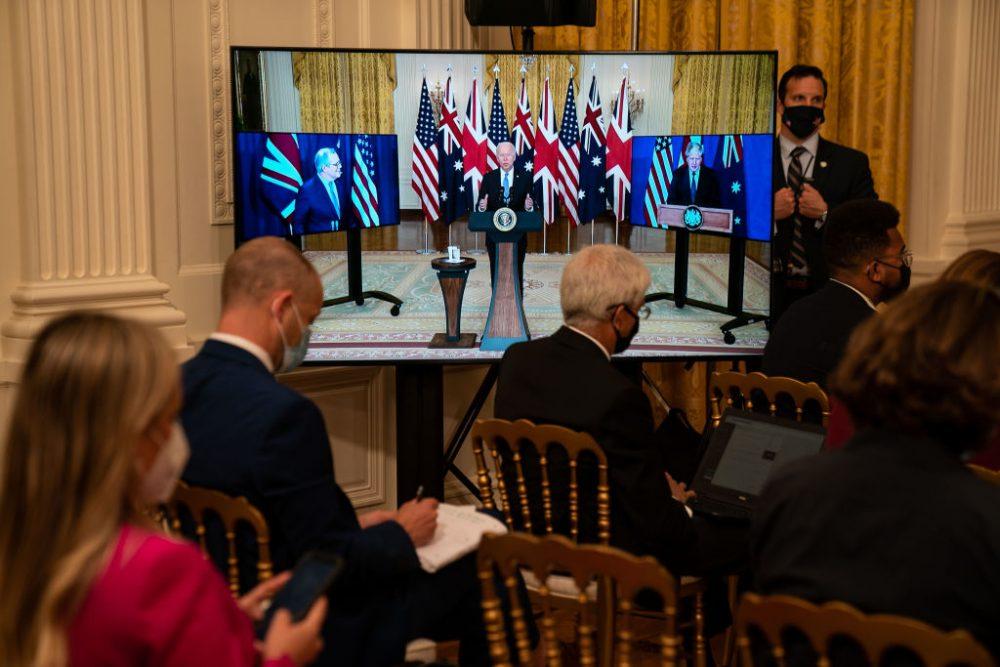
Think tanks are a familiar feature of the public-policy landscape in Australia, along with television epidemiologists and dyspeptic former prime ministers. But the idea of an independent, non-government institution, established specifically to study a particular problem set or policy issue, is a relatively recent phenomenon.
The term think tank (along with the equally cartoonish brain box) has been around since at least the 19th century and originally was applied to the human skull, to describe the container in which thinking occurred. So it was not too big a stretch in the 1950s and ’60s to apply the term to institutions such as the RAND Corporation, created to provide what we would call the data analytics to support US government programs on everything from putting a man on the moon to putting a bomb on a target during the Vietnam War.
Since then, think tanks have expanded in scope and number to the point where there are more than 1,800 such institutions across the US, and 400 in Washington DC alone. Many of these think tanks are private non-profit organisations, while others receive at least some direct government support. Nearly all rely on individual and corporate donors, and often in large quantities—the assets of the Carnegie Endowment for International Peace alone stand at around $750 million.
And from next year there will be one more think tank in Washington, somewhat smaller in scale but proudly flying the Australian flag. In September, Defence Minister Peter Dutton announced that the Australian government would provide seed funding to enable ASPI to open an office in Washington. The new office, due to open early next year, will be the institute’s first overseas location, indeed its first move outside a Canberra postcode. And while the decision to open an office inside the Washington beltway pre-dates the conclusion of the trilateral AUKUS agreement, the timing could hardly be better.
The opening of an ASPI office in Washington comes as the US–Australia alliance has never been more tightly integrated into Australia’s future strategic planning than it is following the AUKUS announcement. While most headlines about AUKUS have focused on nuclear-powered submarines, the reality is this new trilateral arrangement opens up once-in-a-generation opportunities that extend way beyond maritime capability.
In Prime Minister Scott Morrison’s words, AUKUS represents a partnership where ‘our technology, our scientists, our industry, our defence forces are all working together to deliver a safer and more secure region’. Technology, science, industry, defence, and maybe add in newer items on the national security checklist—pandemic control, climate change and cybersecurity—all of these involve critical policy issues.
What will be the impact of AUKUS on existing regional partnerships and treaty arrangements, supply-chain security and planning for sovereign defence capabilities? Then there’s the giant panda in the room: how will all this affect China’s attitude towards Australia and regional security? Of course, the Australian government already has an extremely effective diplomatic presence in Washington, but the ASPI office will provide independent, non-partisan analysis of the US–Australia relationship and current events in the US, and will be able to inject an Australian perspective into academic and public-policy debates in Washington.
It has often been the case that Australia, as the smaller ally, has shaped US policy thinking about the alliance and Indo-Pacific security more widely. Australian views on security are sought after and respected in Washington. ASPI aims to strengthen that exchange of views, and to make the alliance relationship the best it can be during a time of great strategic challenge.
Its success will be built on engaging key policy influencers and thought leaders in Australia and the US across a range of specialisations, drawing on ASPI’s existing specialist expertise and adding new perspectives through fellowships and scholarships focused on policy areas directly relevant to US–Australia issues. The ASPI office in Washington will be independent of government but will aim to contribute directly to better decision-making and policy formulation in its core focus areas.
While ASPI receives some funding from government sources, it relies on other revenue streams including corporate sponsorship, commissioned tasks and event registration fees to ensure its independence. The long-term viability of the Washington office will also require sponsorship from individuals and companies willing to invest in Australia’s future through endowments of fellowships or sector-specific research projects in areas of critical national interest.
It is a bold move by ASPI to launch a new player into the crowded marketplace of ideas in Washington. But it is indicative of the depth and maturity of the bilateral relationship with the US, and of ASPI’s own capabilities and ambitions, that now is the absolutely right time to do so.
As President Joe Biden said at the launch of the AUKUS arrangement: ‘This is about investing in our greatest source of strength—our alliances—and updating them to better meet the threats of today and tomorrow.’
That is a sentiment that applies equally well to ASPI and its newest office in Washington.